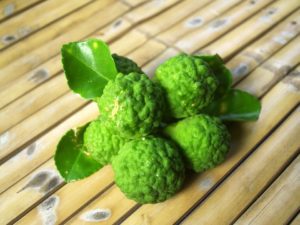 Cinnamon
Cinnamon
Antibacterial, anti-fungal, anti-inflammatory
Cleaning: Research has demonstrated that cinnamon oil is potent enough to eliminate more than 20 types of bacteria, so if you want to go green with your cleaning (and enjoy a lovely, warming scent while cleaning) cinnamon oil is an ideal option.
How to Use It: In a spray bottle mix 10 to 12 ounces of water with 50 to 100 drops of cinnamon essential oil. This mixture can be used to wipe down everything from the kitchen sink to the bathroom toilet. You can also spray any room or object that needs an antibacterial boost of freshness such as shoes, a closet, the clothing hamper, or a gym bag.
Pain Relief: As a natural pain reliever, cinnamon essential oil can be used to alleviate muscle pains, minor aches, chronic pain, and joint stiffness.
How to Use It: Take 2 tablespoons of carrier oil (jojoba, almond, coconut, grapeseed) and add 3 drops of cinnamon essential oil, then massage on the painful area(s). Avoid sensitive skin areas. Regular massage with cinnamon essential oil reduces inflammation and provides quick relief from stiffness. Additionally, because the scent of cinnamon is very uplifting and warming, it can be used as a winter-blues busting massage oil or diffuser blend.
 Rose
Rose
Mood boosting, antioxidant rich, aphrodisiac
Mood Booster/Aphrodisiac: Recognized throughout history for its beauty, the rose has benefits beyond its perfect petals. Rose essential oil has abundant emotional, psychological, medicinal, and health benefits.
How to Use It: Take 2 tablespoons of carrier oil (jojoba, almond, coconut, grapeseed) and add 3-5 drops of rose essential oil, then use as an all-over moisturizer or massage oil. Add a few drops of rose essential oil to shower gel or shampoo for a mood boosting shower.
Radiant Skin: Because of its strong anti-bacterial and anti-viral properties, rose essential oil is excellent for soothing skin issues such as acne or rosacea.
How to Use It: Simply add 1-2 drops to your daily moisturizer or blend a few drops of rose essential oil with coconut oil and apply to the face or problem areas. NOTE: Rose essential oil improves the absorption of nutrients through the skin so be sure to use natural, toxin-free products. Additionally, rose essential oil can be applied to scars to help minimize their appearance.
Bergamot
 Mood boosting/anxiety reducing, natural deodorant, pain reliever
Mood boosting/anxiety reducing, natural deodorant, pain reliever
Mood Booster/Anxiety Reducer: Because of its bright, uplifting, citrusy scent, bergamot essential oil is excellent for improving mood and easing anxiety.
How to Use It: Apply several drops to a diffuser and breathe in the positivity! Take 2 tablespoons of carrier oil (jojoba, almond, coconut, grapeseed), and add 3-5 drops of bergamot essential oil and apply to wrists and/or neck and chest.
Deodorant: Bergamot essential oil has anti-fungal and anti-bacterial properties and a strong, citrusy scent making it an excellent natural deodorizer.
How to Use It: There is some debate over the best application of bergamot. Some suggest a few drops applied directly to the pits is ideal. However, because essential oils are so highly concentrated, there is always a risk of skin sensitivity. Other suggestions include diluting a few drops in some coconut oil and then applying to the underarms. An online search will provide an abundance of all-natural DIY recipes!
Pain Relief: Bergamot oil has analgesic properties that minimize the feeling of pain in an injured area. Whether it’s a headache or chronic arthritis pain, bergamot may prove to be extremely beneficial. Bergamot can also be useful on minor cuts or scraps as it helps alleviate pain and its antibacterial properties can help healing.
How to Use It: Again, some suggest applying a few drops of bergamot essential oil directly to the forehead, a cut, or an area of pain. Others advise adding drops of bergamot oil to a carrier oil and then applying to the area of need.
